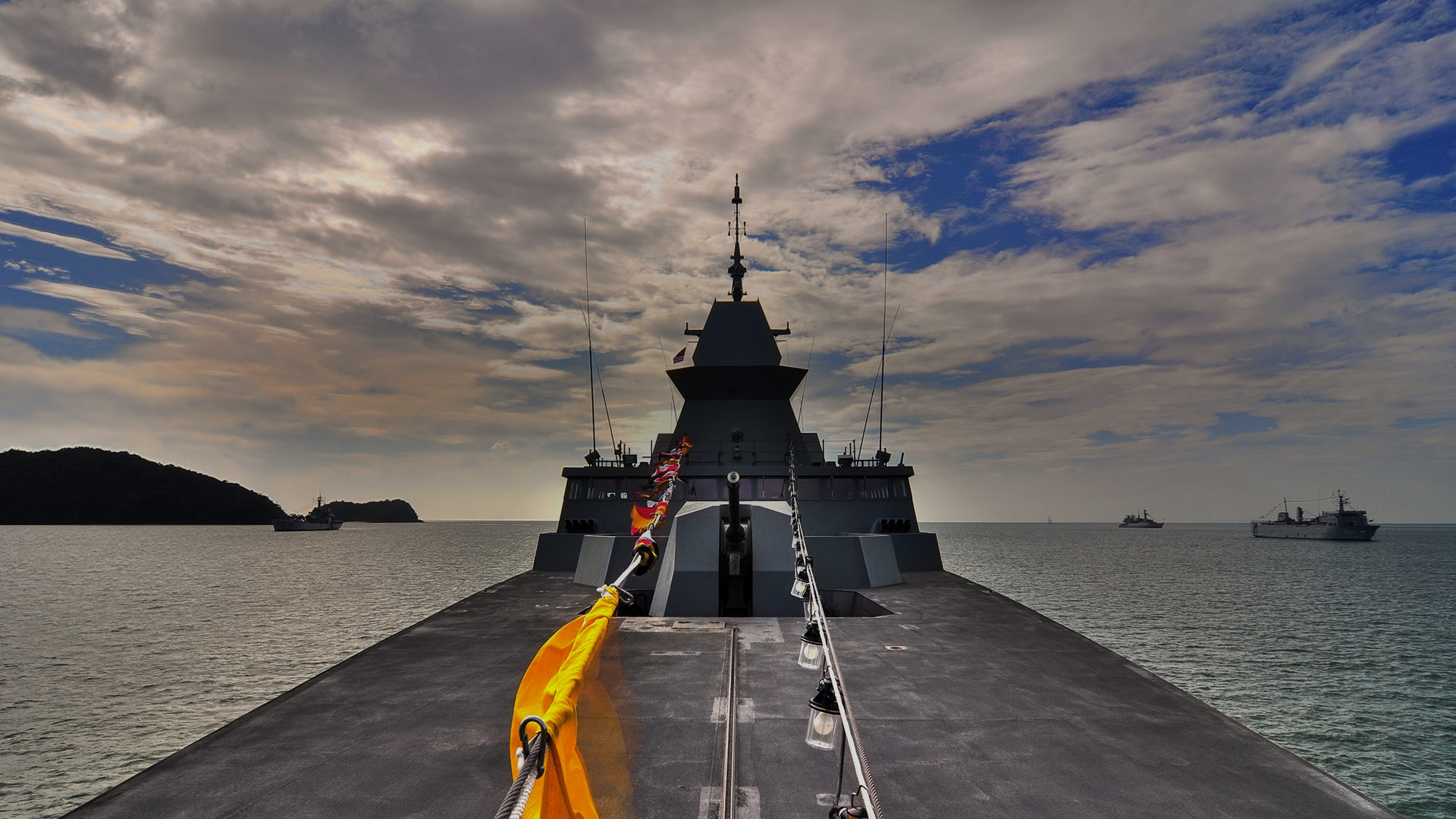Naval flags and pennants
Sporting bold hues and eye-catching patterns, naval flags and pennants play a crucial role in communication between ships while maintaining radio silence or when voice communication deteriorates.
On this page

Communicating in the open sea
Using the International Code of Signals, ships can communicate despite language differences. Learn what these flags and pennants represent.
Naval flags

Alpha
“I have a diver down; keep well clear at slow speed.”

Bravo
“I am taking in or discharging or carrying dangerous goods.” (Originally used by the Royal Navy specifically for military explosives.)

Charlie
“Affirmative”

Delta
“Keep clear of me; I am manoeuvring with difficulty.”

Echo
“I am altering my course to starboard.”

Foxtrot
“I am disabled; communicate with me.”

Golf
“I require a pilot.”

Hotel
“I have a pilot on board.”

India
“I am altering my course to port.”

Juliet
“I am on fire and have dangerous cargo on board; keep clear.” Or, “I am leaking dangerous cargo.”

Kilo
“I wish to communicate with you.”

Lima
In harbour: “The ship is quarantined.” At sea: “You should stop your vessel instantly.”

Mike
“My vessel is stopped and making no way through the water.”

November
“Negative.”

Oscar
“Man overboard.”

Papa
In harbour: “All personnel should report on board; proceeding to sea.”

Quebec
“My vessel is ‘healthy’; request clearance into port.”

Romeo
In harbour: “Ready duty ship.” At sea: “Preparing to replenish.”

Sierra
“I am operating astern propulsion.”

Tango
“Do not pass ahead of me.”

Uniform
“You are running into danger.”

Victor
“I require assistance.”

Whiskey
“I require medical assistance.”

X-ray
“Stop carrying out your intentions and watch for my signals.”

Yankee
“Ship has visual communications duty.” Or, “I am dragging my anchor.”

Zulu
“I require a tug.”
Naval Pennants

1

2

3

4

5

6

7

8

9
